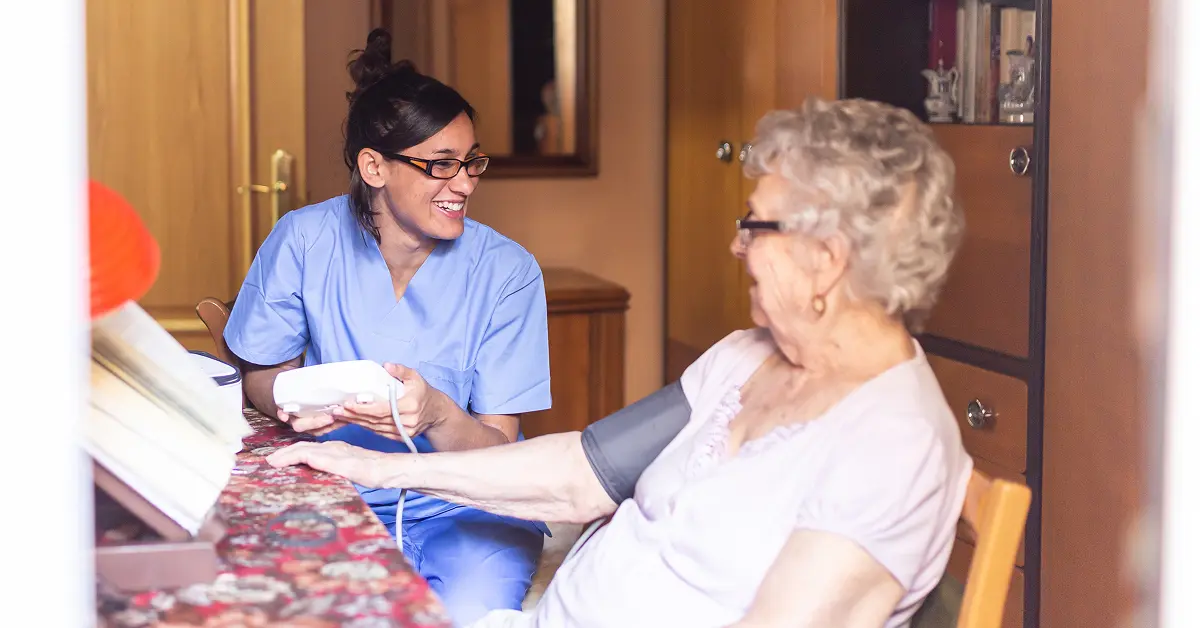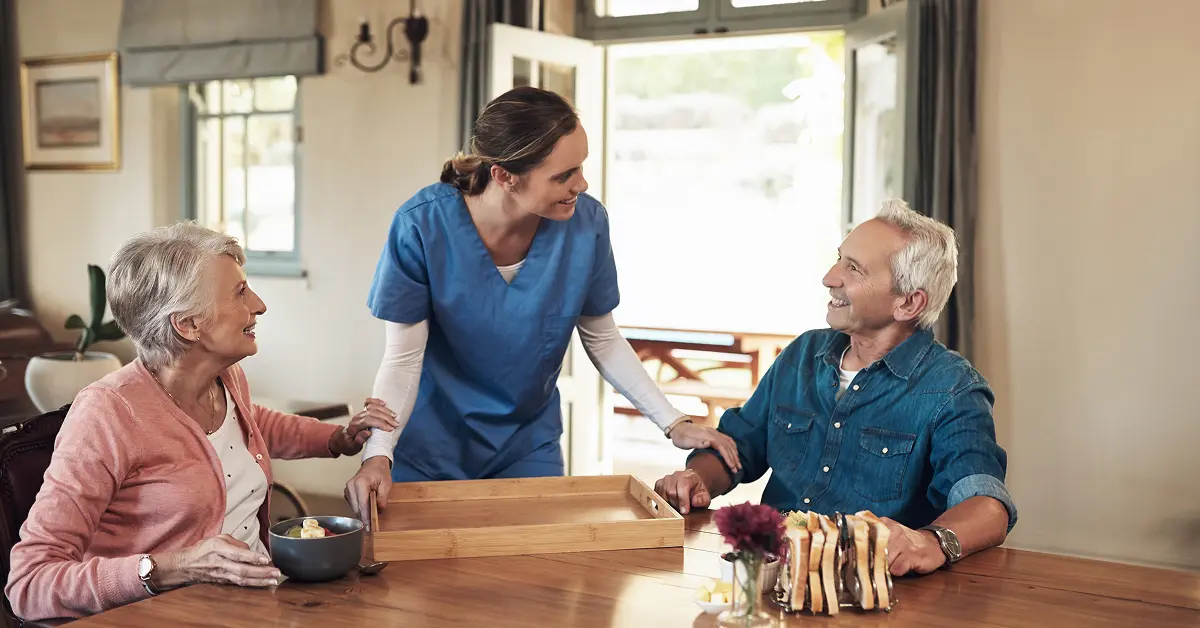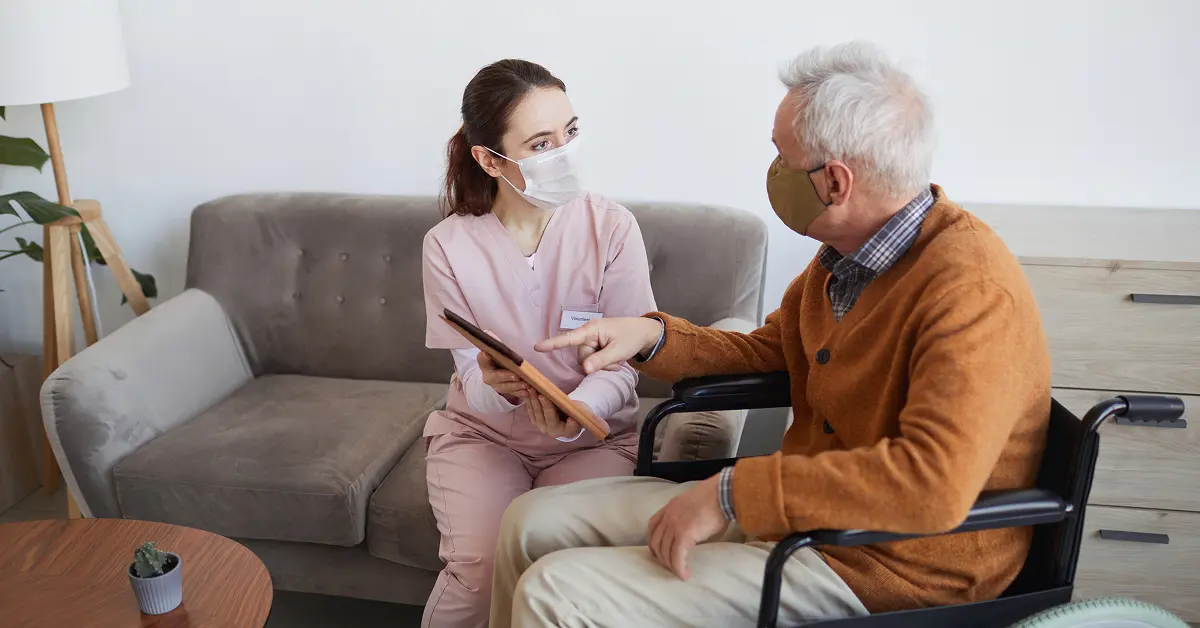As India’s population continues to age, the demand for professional Elderly Care Services is rapidly growing. Among the many challenges seniors face, mobility issues are some of the most common. Conditions such as arthritis, osteoporosis, stroke recovery, Parkinson’s disease, or general age-related weakness can make moving around the home a daily struggle. This is where trained caregivers play an essential role. They not only provide physical support but also ensure that seniors maintain dignity, independence, and emotional well-being.
In this blog, we will explore the importance of trained caregivers for seniors with mobility needs, the kind of assistance they provide, and how their support creates a safer and more comfortable environment for elderly individuals across India.
Understanding Mobility Challenges in Seniors
Mobility issues are not just about difficulty walking. They often include:
- Trouble getting in and out of bed or chairs
- Difficulty climbing stairs
- Risk of slips, trips, and falls
- Weak balance and coordination
- Dependence on mobility aids such as walkers, canes, or wheelchairs
For many seniors, mobility restrictions affect more than their physical independence. It impacts mental health, social interaction, and overall quality of life. The inability to move freely often leads to feelings of isolation, frustration, and depression.
The Role of Trained Caregivers in Mobility Support
Caregivers go far beyond offering physical help. Their training equips them to assist seniors while prioritizing safety, respect, and comfort. Here are some of the key responsibilities they take on:
Safe Transfers and Assistance
Caregivers are skilled in helping seniors move safely from bed to wheelchair, from sitting to standing, or while using mobility aids. Their techniques reduce the risk of falls or injuries.
Encouraging Independence
Instead of doing everything for seniors, trained caregivers encourage them to perform tasks they are capable of. This helps maintain self-esteem and prevents over-dependence.
Medication and Therapy Support
Many seniors with mobility challenges require physiotherapy or regular medication. Caregivers remind them to take medicines on time and assist with prescribed exercises to maintain flexibility and strength.
Fall Prevention
Falls are one of the biggest dangers for elderly people. Caregivers conduct safety checks in the home—removing obstacles, adjusting furniture, and ensuring floors are slip-resistant. They also stay alert during daily activities to prevent accidents.
Emotional and Social Support
Reduced mobility often makes seniors feel disconnected from the outside world. Caregivers act as companions, engaging them in conversations, games, or hobbies, and sometimes even accompanying them on safe outdoor walks.
Benefits of Hiring Trained Caregivers for Mobility Needs
Families often struggle to balance work, personal life, and elderly care. A trained caregiver bridges this gap and brings several benefits:
- Professional Expertise: Unlike untrained attendants, professional caregivers understand medical conditions, body mechanics, and safe handling techniques.
- Peace of Mind for Families: Knowing that a loved one is in capable hands reduces stress for family members.
- Better Quality of Life for Seniors: With mobility assistance, seniors can continue engaging in daily activities, enhancing emotional well-being.
- Customized Care Plans: Caregivers create personalized routines depending on the senior’s health condition.
- Emergency Handling: Trained caregivers are equipped to handle emergencies until medical professionals arrive.
Mobility Aids and Caregiver Support
Caregivers often integrate the use of mobility aids into daily routines. They are trained to help seniors use:
- Walkers and Canes: Providing balance and stability during short walks.
- Wheelchairs: Assisting with transfers and ensuring accessibility around the home.
- Grab Bars and Bed Rails: Installing and using supportive equipment to avoid accidents.
- Orthopedic Supports: Helping with braces, belts, or footwear for joint support.
The Emotional Side of Mobility Care
One of the overlooked aspects of elderly mobility support is its emotional impact. Losing the ability to move freely can be distressing for seniors. They may feel like a burden on their families.
Caregivers step in not only as helpers but also as companions. By encouraging seniors to remain active within their abilities, they restore confidence and provide emotional reassurance.
How to Choose the Right Caregiver for Mobility Support
- Check Training Credentials – Ensure the caregiver has formal training in elderly care and mobility support.
- Look for Experience – Caregivers with experience in handling conditions like arthritis, stroke recovery, or post-surgery care are more reliable.
- Assess Communication Skills – Compassion and patience are as important as technical skills.
- Verify Background – Always hire from trusted agencies that perform background checks.
- Trial Period – A short trial allows families to evaluate compatibility between the caregiver and the senior.
Why Mobility Support Matters in India Today
With India’s ageing population expected to reach over 330 million by 2050, the need for elderly care will only grow. Joint families are becoming nuclear, and many adult children live in different cities or countries due to work commitments. In such situations, professional caregivers are not just a luxury—they are a necessity.
Conclusion
Mobility challenges are a natural part of ageing, but they should never take away a senior’s independence, dignity, or happiness. Trained caregivers provide the perfect balance of physical assistance and emotional support, ensuring that elderly individuals can continue leading fulfilling lives.
From preventing falls to offering companionship, their role is invaluable in modern Indian families. If you are caring for a loved one with mobility needs, consider professional caregiver services—they can truly transform daily life for both seniors and their families.
Contents
- Understanding Mobility Challenges in Seniors
- The Role of Trained Caregivers in Mobility Support
- Benefits of Hiring Trained Caregivers for Mobility Needs
- Mobility Aids and Caregiver Support
- The Emotional Side of Mobility Care
- How to Choose the Right Caregiver for Mobility Support
- Why Mobility Support Matters in India Today
- Conclusion
Our 24*7 services
Latest Posts
- What Is Respite Care and Why Is It Important
- Affordable home care for senior citizens in India
- Caring for Seniors with Dementia or Alzheimer's at Home
- Senior Caregiving A Guide for Every Family
- How to Write a Caregiver Resume That Gets You Hired
- How Care After Hospital Discharge Speeds Up Recovery at Home
- How to Get Home Health Care for Seniors Through Medicare
- What Does a Senior Citizen Caregiver Really Do at Home
- How to Care for Elderly Parents with Alzheimer’s or Dementia
- How to Get 24-Hour Care for Seniors at Home



